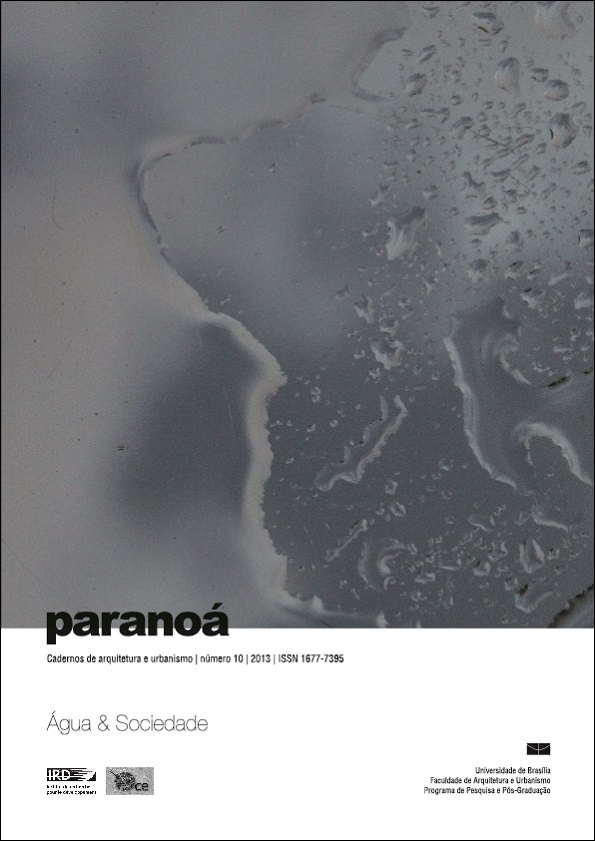Explorando o déficit em saneamento no Brasil: evidências da disparidade urbano-rural
DOI:
https://doi.org/10.18830/issn.1679-0944.n10.2013.12122Keywords:
Basic sanitation deficit, Rural basic sanitation, Urban-rural iniquitiesAbstract
The characterizations of the Brazil’s lack of access to basic sanitation have been historically performed considering levels of data disaggregation which do not enable to know in detail the spatial distribution of access. Using microdata from the 2010 IBGE Census, this paper aims to explore the differences between basic sanitation access and coverage considering urban and rural areas, disaggregated to the municipality level. In addition, indicators to measure the degree of inequality between urban and rural deficits were created. For the presentation of the results, thematic maps, tables and graphs were used. The conclusion was that there are substantial differences in the access to basic sanitation between rural and urban areas of Brazil. In general, rural areas have the worst indicators in all analyzed variables. Besides, regions that do not show expressive deficits in rural basic sanitation, were found to have great iniquities in urban-rural comparison.
Downloads
Downloads
How to Cite
Issue
Section
License
Autores que publicam nesta revista concordam com os seguintes termos:
- Autores mantém os direitos autorais e concedem à revista o direito de primeira publicação, com o trabalho simultaneamente licenciado sob a Licença Creative Commons Attribution que permite o compartilhamento do trabalho com reconhecimento da autoria e publicação inicial nesta revista. http://creativecommons.org/licenses/by/4.0
- Autores têm autorização para assumir contratos adicionais separadamente, para distribuição não-exclusiva da versão do trabalho publicada nesta revista (ex.: publicar em repositório institucional ou como capítulo de livro), com reconhecimento de autoria e publicação inicial nesta revista.
- Autores têm permissão e são estimulados a publicar e distribuir seu trabalho online (ex.: em repositórios institucionais ou na sua página pessoal) a qualquer ponto antes ou durante o processo editorial, já que isso pode gerar alterações produtivas, bem como aumentar o impacto e a citação do trabalho publicado (Veja O Efeito do Acesso Livre).















